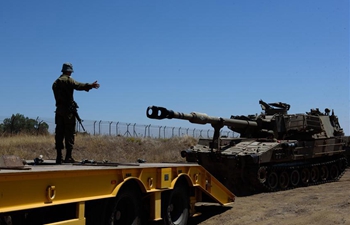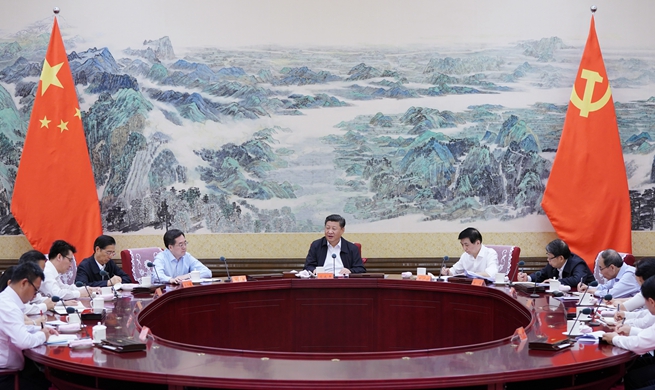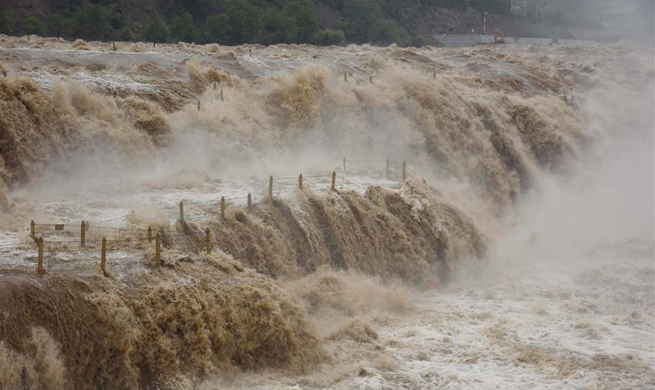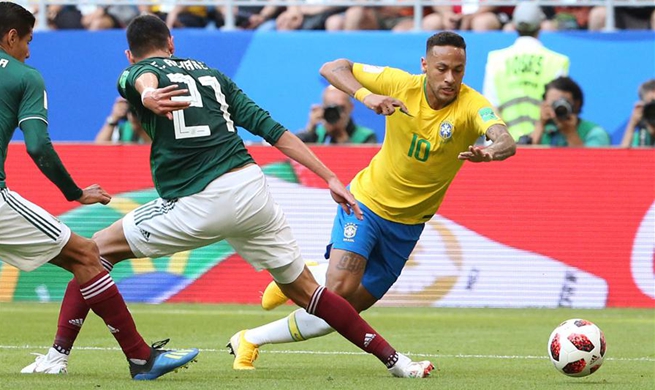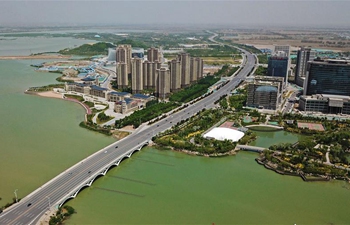ATHENS, July 3 (Xinhua) -- Greece's four systemic banks have intended to revise their non-performing exposure (NPE) targets further low for next year and the ones to follow, heeding the call by the central Bank of Greece (BoG) for increasing their efforts to clear out their bad-loan stock.
In its report on monetary policy published on Monday, the Greek central bank noted that Alpha, Eurobank, National and Piraeus are on course to meeting the target for cutting their NPEs to 43 percent of all loans by the end of this year and down to 35.2 percent by end-2019.
Already in end-March the rate dropped to 48.5 percent, which amounts to 92.4 billion euros (107.5 billion U.S. dollars), the BoG recorded.
Banks are expected to show next month that they have met their targets for the first half of the year, but this has mainly been due to write-offs, as the sales of portfolios have only recently started gathering pace, while loan restructurings and the liquidation of collateral through auctions have not yet reached the desired level.
The report signed by Governor Yannis Stournaras argued that the 35.2-percent level is not sufficient for the rapid recovery the banks need so as to help fund the economy toward substantial growth, calling for more ambitious targets.
The BoG explained that while the absolute figure of NPEs in value terms may indeed go down to the projected 64.6 billion euros, the rate remains high due to the fact that instead of a credit expansion, the economy witnessed a credit contraction of 2 percent in the year's first quarter and long-term projections are to be revised lower.
Therefore in the plans that banks are drafting, and will submit in September to the Single Supervisory Mechanism of the European Central Bank, they intend to adjust lower their NPE reduction target for end-2019 and take the goal for the end of the three-year period of 2019-2021 below 20 percent of all credit, sources have told Xinhua.
"This is a very optimistic target, and there are many conditions in the general economy that have to be met for such a level to be achieved," Dimitris Kainourgios, economics lecturer at a university in Athens, commented when speaking to Xinhua.
"Banks are doing the right thing setting the bar high, but there are many asterisks in the general economy that will also affect the course of the NPE reduction process," he added.
"There are many instruments for banks to use, but they also need the support of the economic environment such as the promotion of reforms and the growth of the gross domestic product for them to efficiently cut their NPE stock," Kainourgios stressed.
Among those instruments is the sale of NPE packages to foreign funds, with Piraeus Bank announcing on Monday the sale of a pool of unsecured bad loans "named Arctos" to APS Investments for almost 50 million euros (58.2 million U.S. dollars), at 5 percent of the portfolio's original value of 1 billion euros. (1 euro = 1.164 U.S. dollars)





